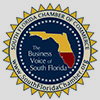Miami-Dade lawmakers want criminal penalties for fraud and abuse by condo directors [3-13-17]
Article Courtesy of The Miami Herald
By Brenda Medina and Erika Carrillo
Published March 13, 2017
After decades of struggling against a condo regulatory system that experts say perpetuates impunity and makes it easy to commit fraud, thousands of condominium owners in Florida may finally see substantial changes in state laws.
Earlier this month, state senators and representatives from Miami-Dade filed a bill that includes 21 reforms to Chapter 718 of the Florida statutes. The reforms seek to correct gaps in the laws and establish criminal penalties for some irregularities in the administration of condos.
The plan classifies falsification of documents, an offense that now carries no legal consequences, as a third degree felony and sets prison terms. It also criminalizes electoral fraud, such as the falsification of signatures on ballots for condo boards of directors, and refusing access to administrative records with the intent to cover up crimes.
The proposal came one year after el Nuevo Herald and Univision 23 published a series of investigative stories on condo abuses in South Florida, like electoral fraud, falsification of signatures, conflicts of interest, embezzlement and cases of fraudulent bidding.
Hundreds of Miami-Dade County condominium owners marched in protest in the city of Doral on April 16, 2016.
The series also exposed the lack of enforcement by authorities, from local police departments who refused to investigate allegations of fraud, to widespread negligence at the state agency in charge of enforcing condo laws and regulations and investigating complaints.
“The importance of these reforms is that all these ideas came from the people and from all the residents that we interviewed,” said state Rep. Jose Felix Diaz, chairman of the Miami-Dade delegation to the Florida Legislature and prime sponsor of the proposal in the state House. “For the first time there will be criminal consequences for those who commit fraud.”
Diaz added that many of the ideas to criminalize abuses by condo administrators and boards of directors came from the county police and the state attorney’s office in Miami-Dade.
A grand jury report last month harshly criticized the state agency that regulates condos, the Department of Business and Professional Regulations, saying it had been negligent in the investigations of thousands of complaints submitted to it.
The report made several recommendations for changes, which were taken into consideration by the Miami-Dade lawmakers as they drafted their proposals.
State legislator René García speaks at a press conference on Friday, March 3, 2017, to outline proposals for new laws that would make it a crime to rig condo board elections.
Miami-Dade State Attorney Katherine Fernandez Rundle and state Sens. René García and José Javier Rodríguez announced they had finished the proposals at a recent news conference.
Also at the conference were Miami Commissioner Francis Suarez, representing the Miami-Dade County League of Cities, County Commissioner Esteban Bovo and a group of condo residents.
Fernandez Rundle said her office “on a daily basis, deals with complaints from condominium owners” who have problems “from trivial issues that make daily life difficult to the improper use of millions of dollars.”
“That’s when the owners realize the state of Florida offers them few legal protections and guarantees,” she added.
Police and State Attorney officials have insisted that the lack of criminal penalties in condo laws and regulations when it comes to investigating and punishing allegations of condo fraud, limits their jurisdiction in these type of cases.
The new bill includes the following provisions. It would:
• Force condo associations to publish financial reports. If financial and administrative documents are not provided as required, those responsible for distributing the documents could face criminal charges that range from a misdemeanor to a third degree felony if the documents are withheld to cover up a crime.
• Establish an eight-year term limit for members of board of directors. “How many times have we heard that the same people are president and vice president, and they just exchange the positions,” García said. But members could stay more than eight years if they win a super-majority vote.
• Establish penalties for electoral fraud, which includes the falsification of signatures on ballots, and punishments for those who are not owners but vote or those who “disappear” ballots.
Miami-Dade State Attorney Katherine Fernandez Rundle speaks at a press conference on Friday, March 3, 2017, with state legislators from Miami-Dade to outline proposed reforms to condo laws. She said her office ‘on a daily basis, deals with complaints from condominium owners’ who have problems ‘from trivial issues that make daily life difficult to the improper use of millions of dollars.’
Clarify the definition of conflicts of interests to prohibit condo directors from being hired to provide services to their condos and from hiring relatives. Currently, board members can be hired to provide services such as cleaning, painting and repairs as long as they disclose the conflict to the other board members.
The el Nuevo Herald and Univision 23 series highlighted the case of the Los Portales III condo in Hialeah, where four board members had been paid more than $100,000 by the management company over five years. The payments were approved by the board members themselves, without the knowledge of the rest of the owners.
After the news media’s investigation, the Miami-Dade Police Department assigned detectives who specialize in economic crimes to handle complaints of condo fraud. They have made five arrests for theft and embezzlement in the past year.
“Any change in the legislation that gives us more power to help the victims in these cases of fraud is welcome,” said Juan Perez, director of Miami-Dade police. “It’s important that other police departments join the county’s efforts.”
Rodríguez stressed that the proposed reforms are the result of bipartisan cooperation, and that the Miami-Dade delegation expects to receive the support of lawmakers from central and northern Florida.











